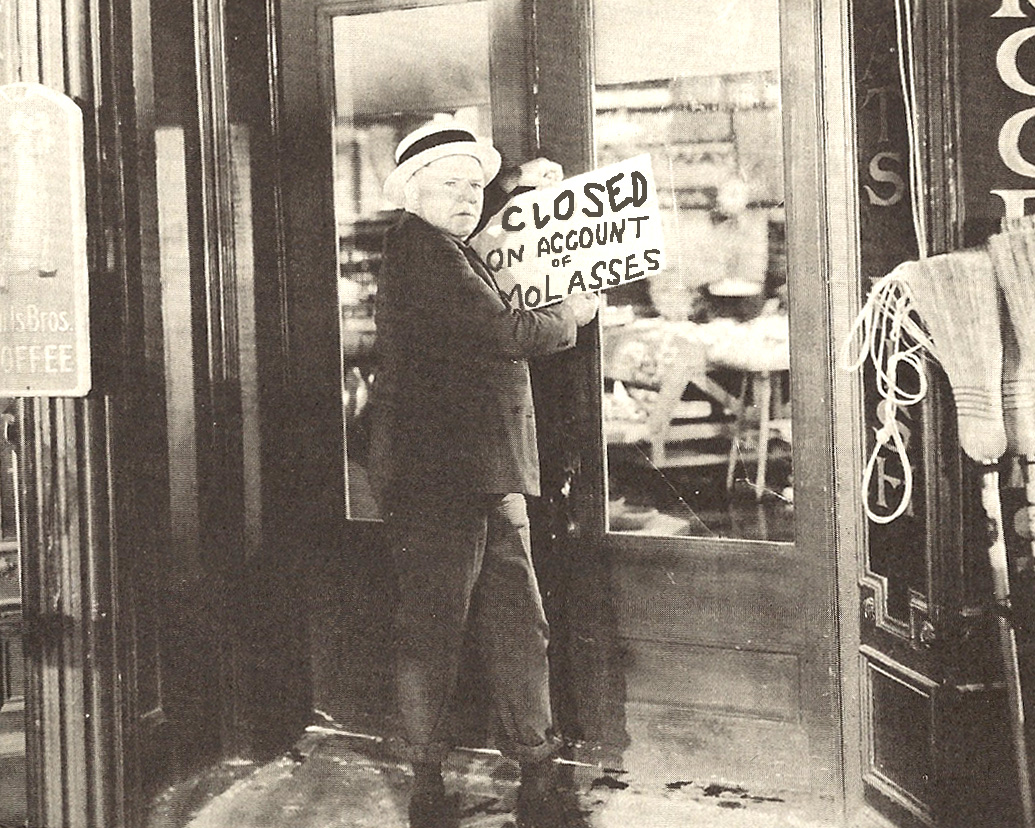When you have B&M Brown Bread in a can, you don't need biscuits, bu do bring on the butter - or cream cheese. 
Posted on 01/15/2018 6:32:51 AM PST by harpygoddess
OK - had to go re-learn why and how molasses is made.
They also didnt take into account fermentation rate and gas pressures produced from the bottom up in the huhe tank.
Oooh, I think this was an episode on the awesome “Seconds from Disaster”!
My Grandfather used to tell this story.
And 14 years before that review, the Chicago Daily Tribune ran a story on December 28, 1872 about the secret investigation of the Credit Mobilier scandal. The newspaper reported that:
Most of them had the matter under advisement for seven or eight months before they could satisfy their consciences as to the moral bearing of the transaction, showing that the average Congressional perception of right and wrong is much slower than molasses in January.
The fact that this event occurred in January is either a cruel irony or an ironic vindication.
If I had my druthers, I would prefer to die in London’s Great Beer Flood of 1814:
http://www.historic-uk.com/HistoryUK/HistoryofBritain/The-London-Beer-Flood-of-1814/
When you have B&M Brown Bread in a can, you don't need biscuits, bu do bring on the butter - or cream cheese. 
Kinda reminds me of a great WC Fields line...his wife is hassling him about his drinking and says "Someday you'll *drown* in a vat of whiskey" and he responds (under his breath) "Drown in a vat of whiskey? Death where is thy sting?"
Brown Bread! Toasted. Butter. Heaven
My wife is a dietitian. I just told her about this. Her comment? “Too much food can kill.”
When I was a kid my mom kept molasses on hand as a standard sweetener.

Are you sure that's spelled correctly?
Dad took us up to Boston last summer and we went to the site of the Molasses flood...
Very sharp of you Sparky1776 (carbon dioxide no less):
That January's relatively balmy, 40-degree Fahrenheit weather may have increased pressure as carbon dioxide built up inside. Before the rupture, the molasses inside the tank was likely 5 degrees Celsius warmer than the surrounding air, thanks to a fresh shipment of syrup from the Caribbean. The higher temperature may have helped the molasses spread over the Boston waterfront at such an alarming pace. http://vaviper.blogspot.com/2017/01/jan-15-1919-bostons-23-million-gallon.html
Disclaimer: Opinions posted on Free Republic are those of the individual posters and do not necessarily represent the opinion of Free Republic or its management. All materials posted herein are protected by copyright law and the exemption for fair use of copyrighted works.